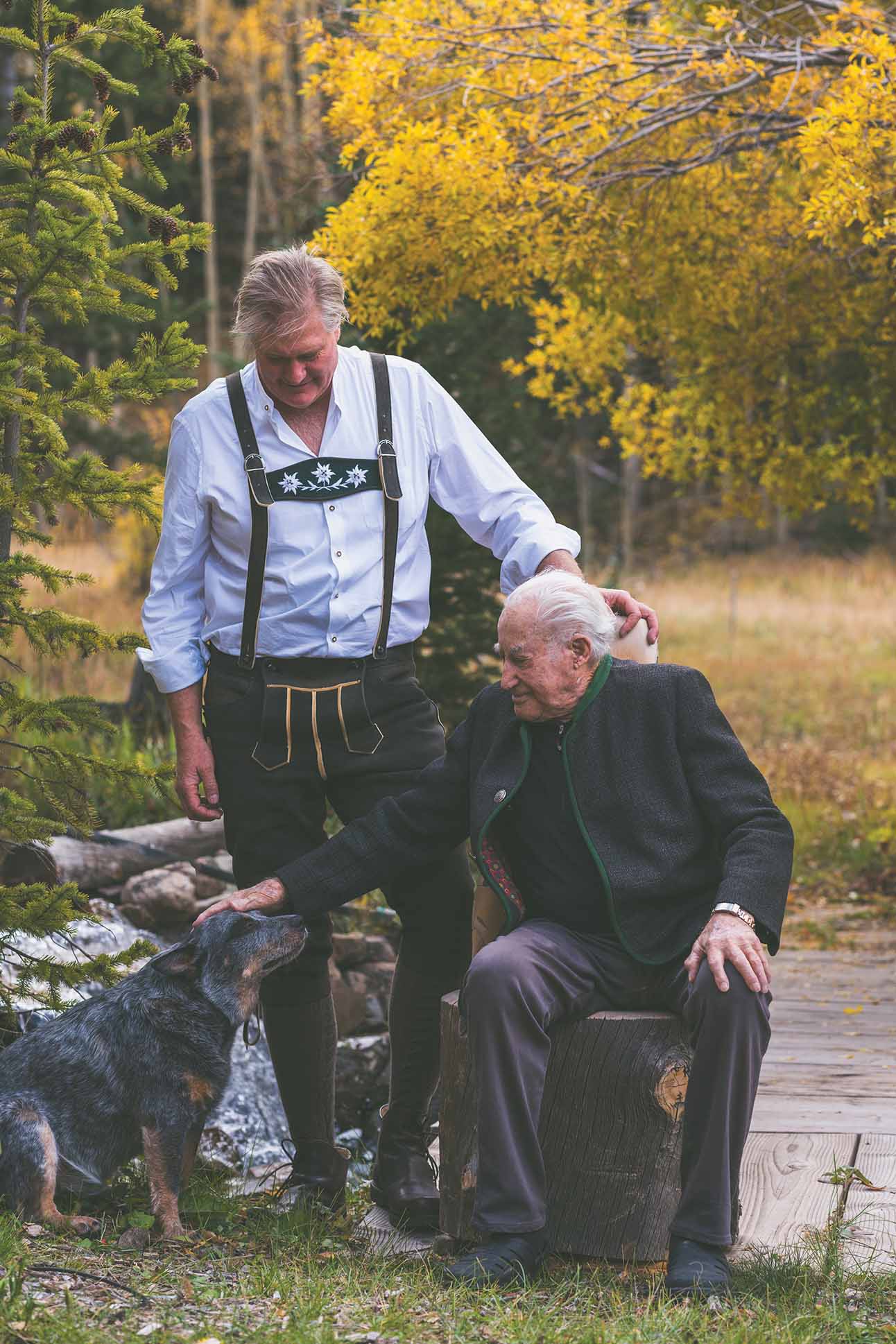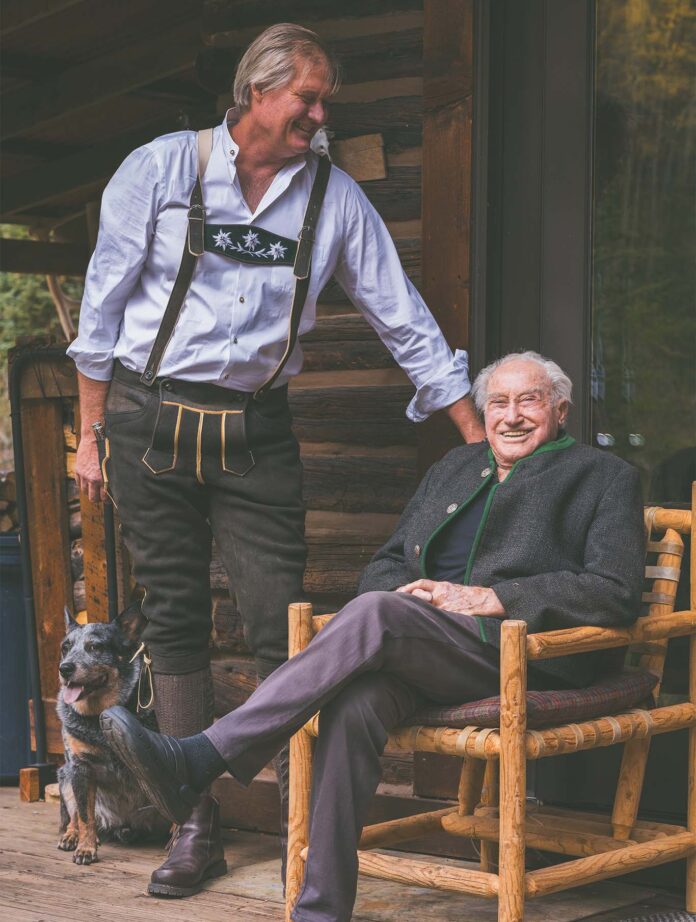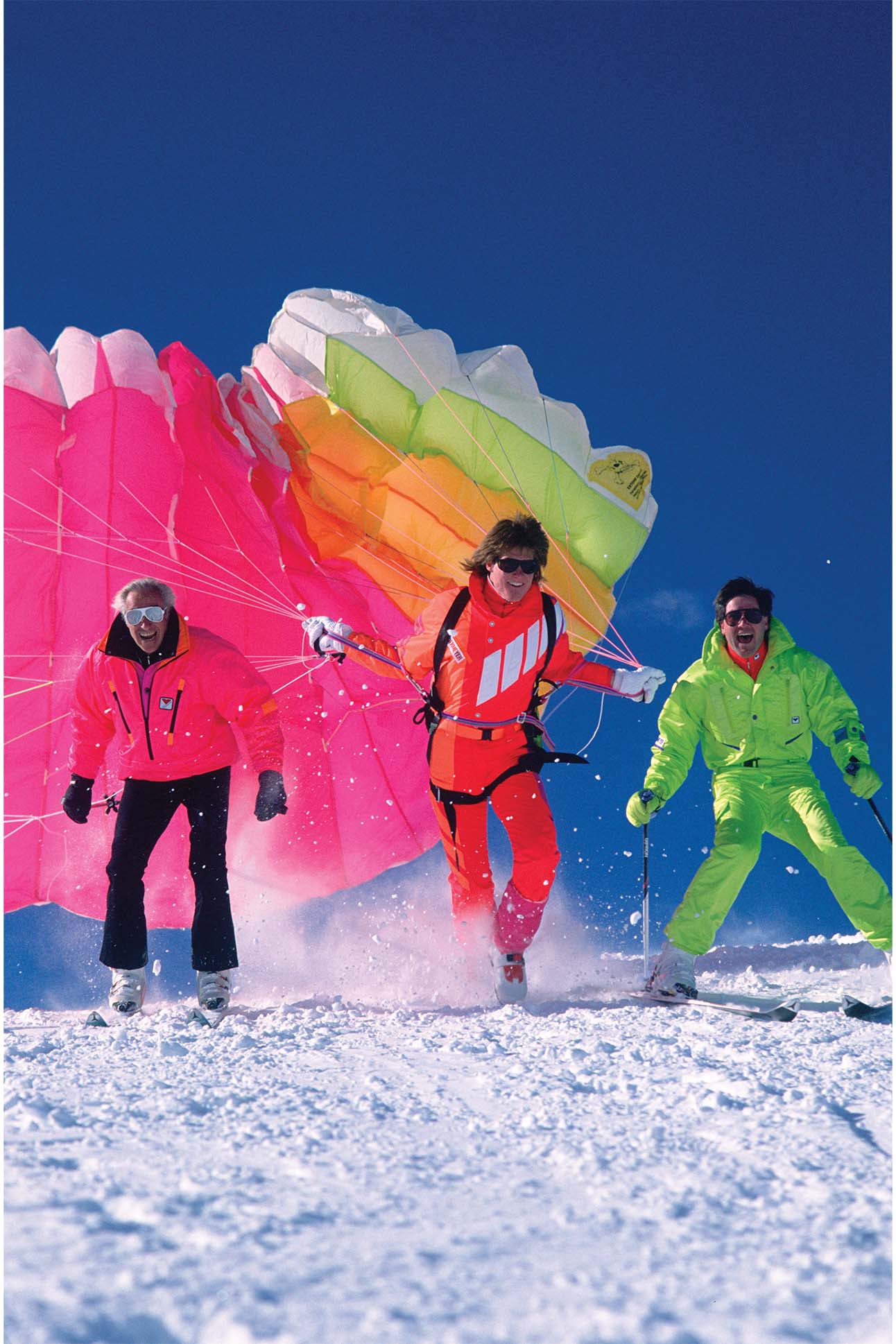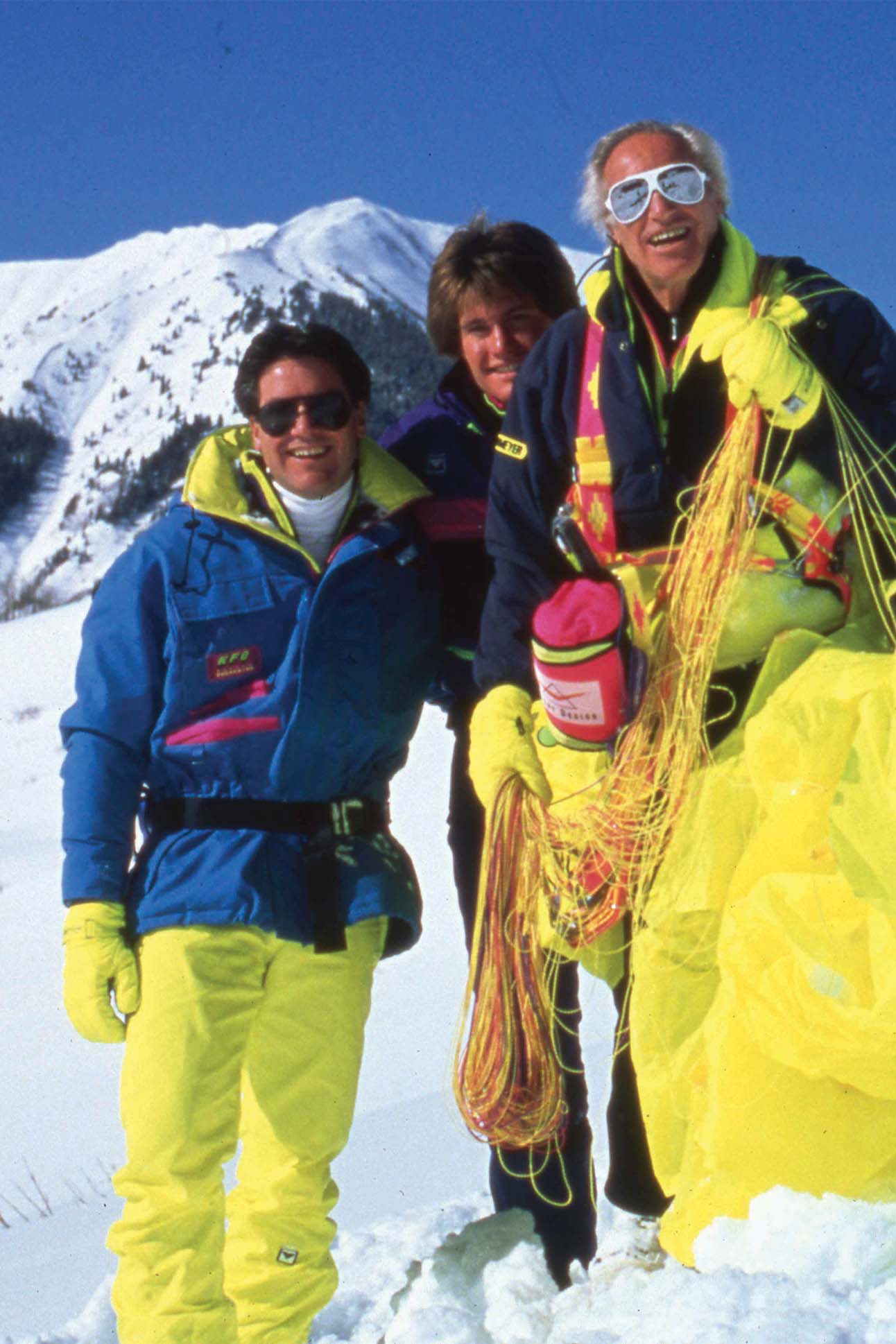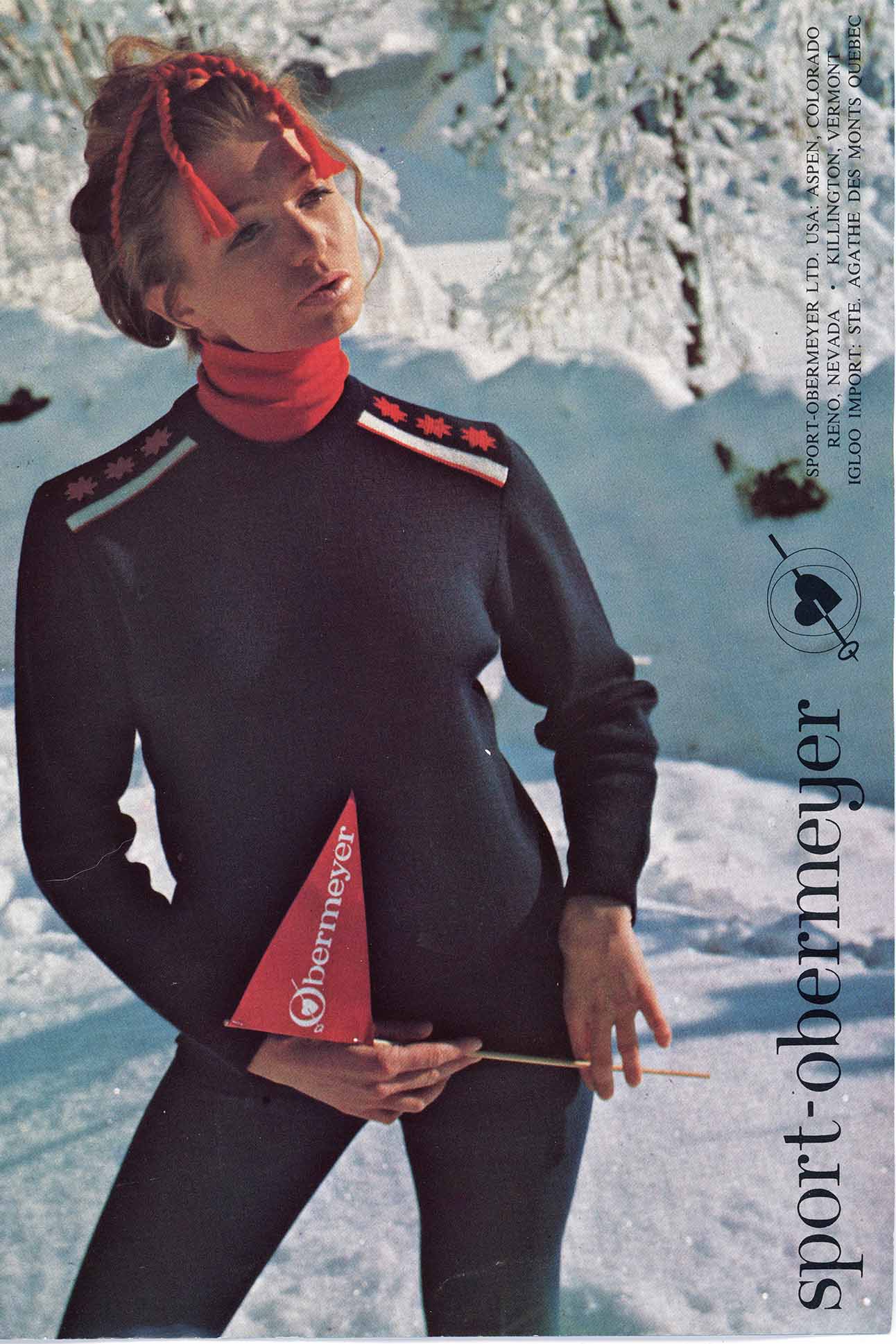Text by Jay Bouchard
Images by Craig Turpin and courtesy of the Obermeyer Family and Sport Obermeyer
Joy comes easy these days for Klaus Obermeyer Sr. He admits that when he turned 100 in 2019, the milestone felt a little strange. But now, as of this writing, at 104 (he turns 105 on December 2nd), he spends little time thinking about age. “The years, they keep coming,” he says. “And as long as they come, I smile at them.”
He’s had plenty to smile at in the many decades since he escaped Nazi Germany. By 1947, he’d made his way to Aspen, where he found work as a ski instructor alongside his friend and Aspen Ski Corporation co-founder, Friedl Pfeifer. Soon after, he used his technical background to form Sport Obermeyer, an equipment and apparel company that addressed shortcomings in outdoor recreation. His earliest innovations—like double-lens goggles, high-altitude sunscreen, steel ski poles and dual-layer ski boots are still outdoor apparel standards today. “There were many things to make better,” Obermeyer says. “We wanted to make skiing safer and more fun.”
That mission hasn’t changed over the course of nearly 80 years. Nor has Sport Obermeyer’s standing as an independently held family operation. Nome Obermeyer, who married Klaus in 1965 and became the company’s lead designer, is still integral to the operation. Klaus Obermeyer Jr., age 55, returned to Aspen two years ago to help his parents steer the business into the future.
We spoke with the Obermeyers to hear about the company’s storied history and learn what the future holds for one of the ski industry’s most recognizable brands. (This interview was conducted just before Sr.’s 105th birthday.)
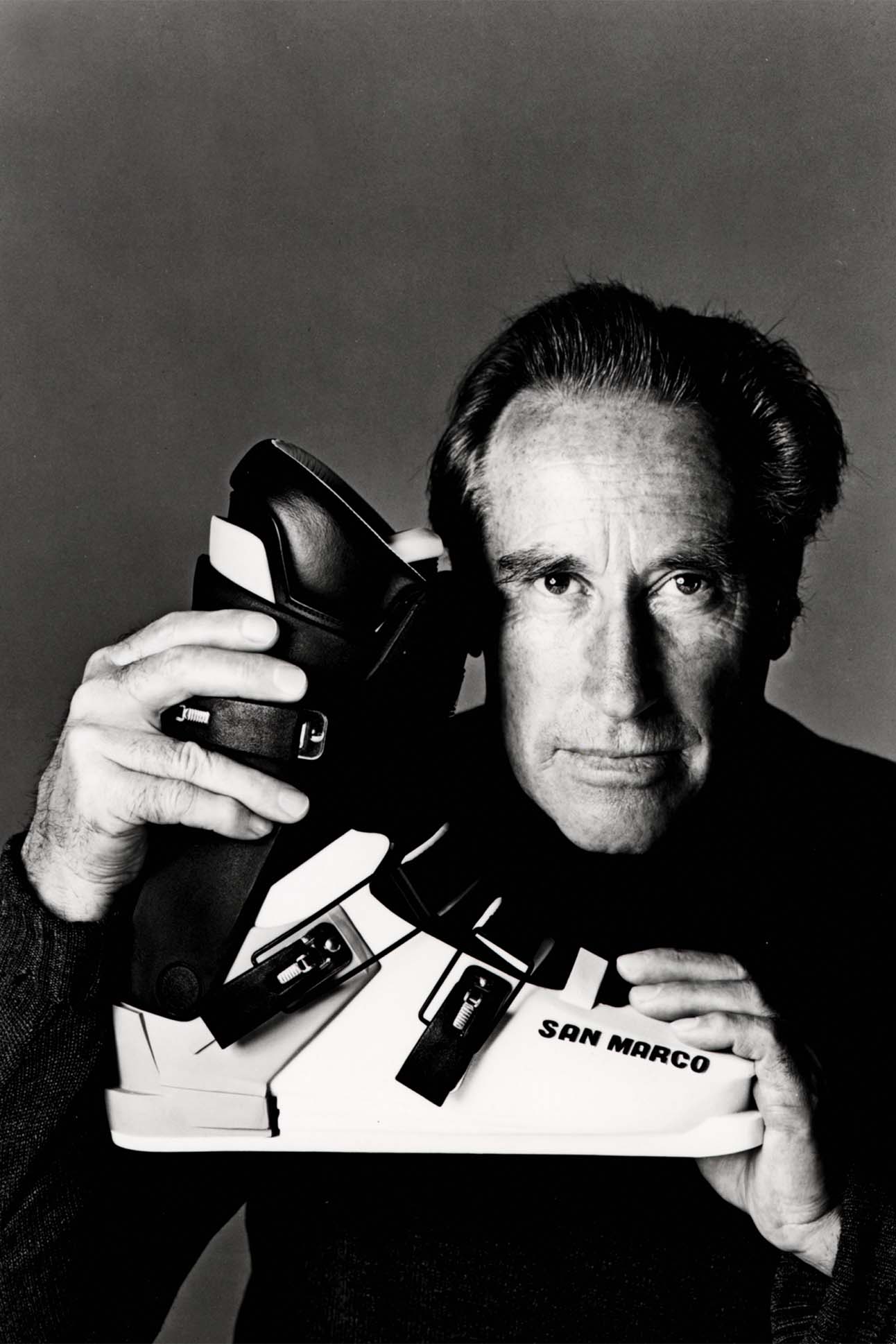
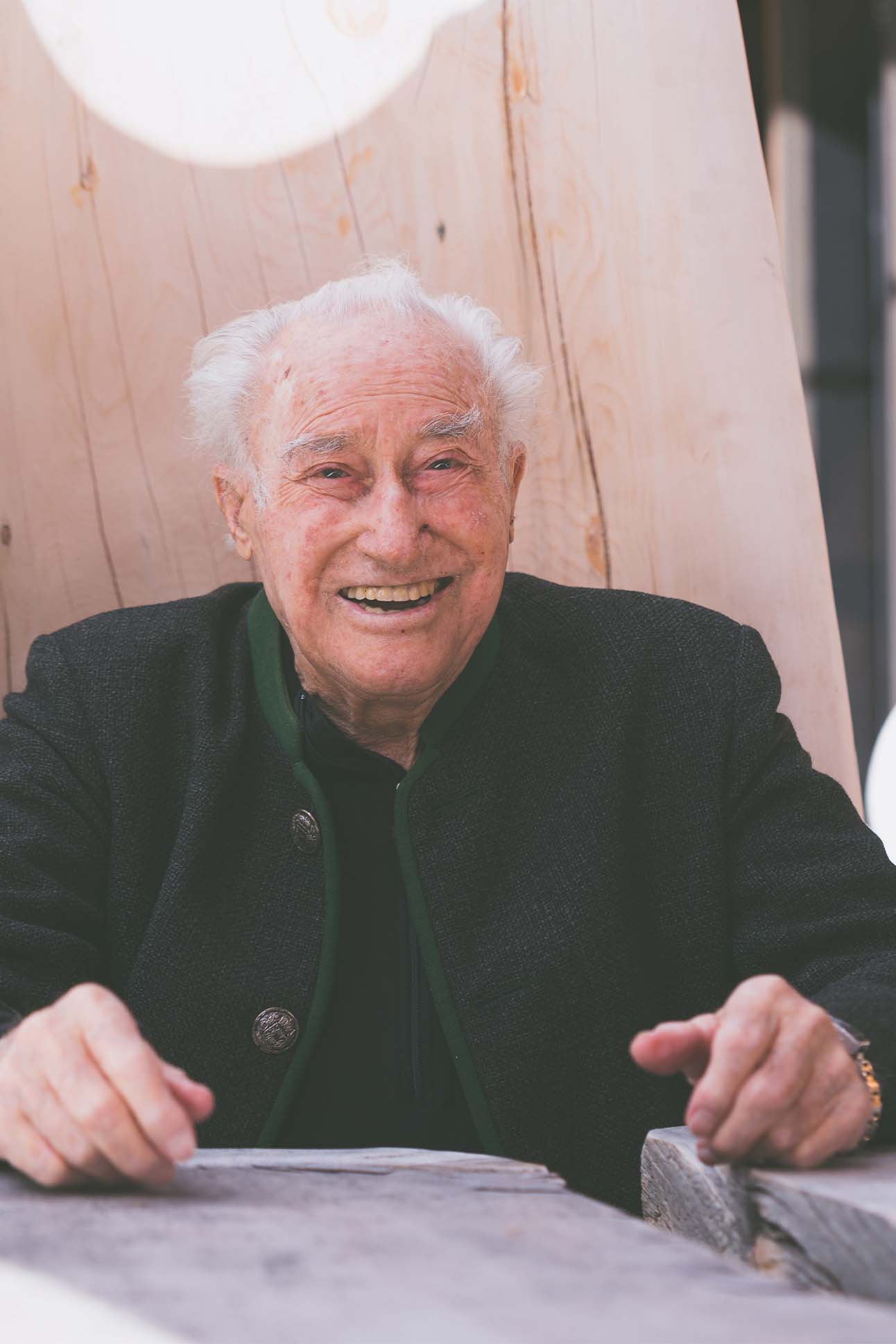
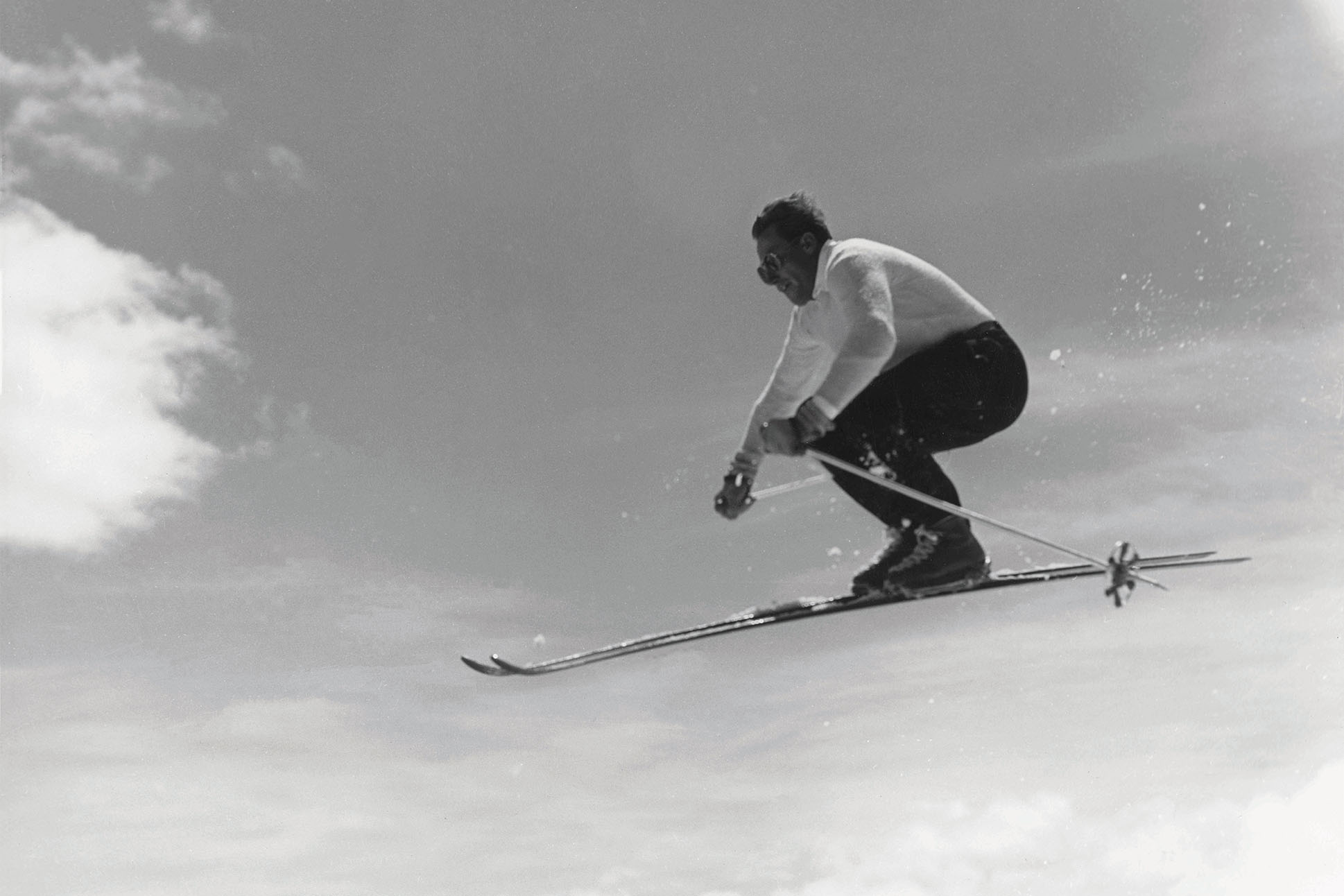
Klaus Jr., you’re back in Aspen to help lead Sport Obermeyer. What has it been like working alongside your dad?
Klaus Jr: It’s a real gift to have someone who, at 104, is so lucid and has such a great sense of humor. Someone in which you can tap into the wisdom of that kind of timespan on the planet and into a high-fidelity mind that can convey the wisdom of all of these years. People talk about being AI-enhanced. Well, I’m Klaus Sr.-enhanced because I can tap into this amazing reservoir of life experience. Dad is still signing all the checks. He knows exactly what’s going on in the business and is invested. He still comes to the office occasionally. I have taken on the role of co-CEO, co-president and chairman of the board.
Klaus Sr., are you still skiing in the winter?
Klaus Sr: No, but I swim almost every day. I’m lucky to have a big, heated pool at the house, and in the morning, in the shower I do a lot of aikido extension and breath work. I try to use every muscle. I have someone coming twice a week who works with me on all kinds of stretches. It’s terrific.
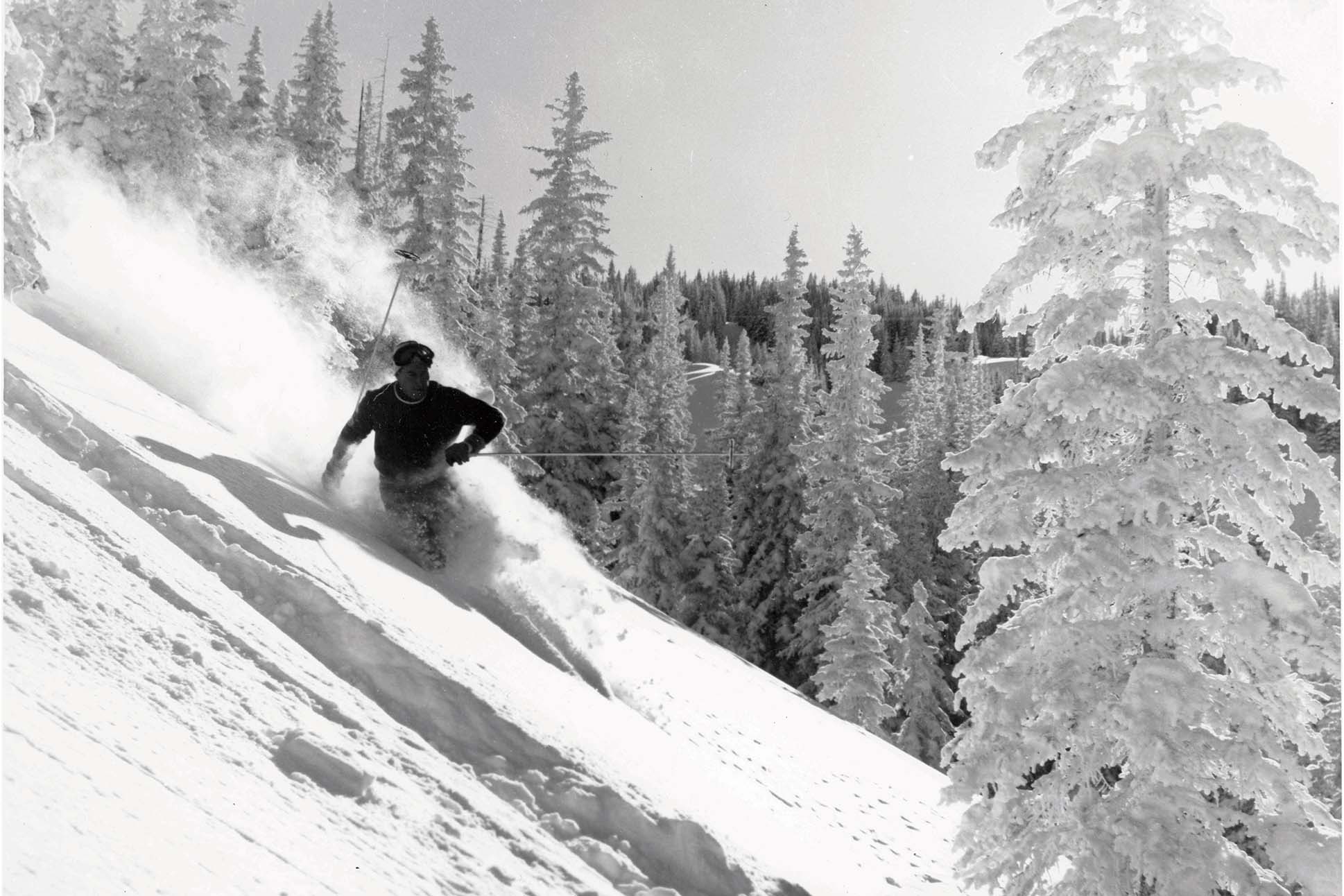
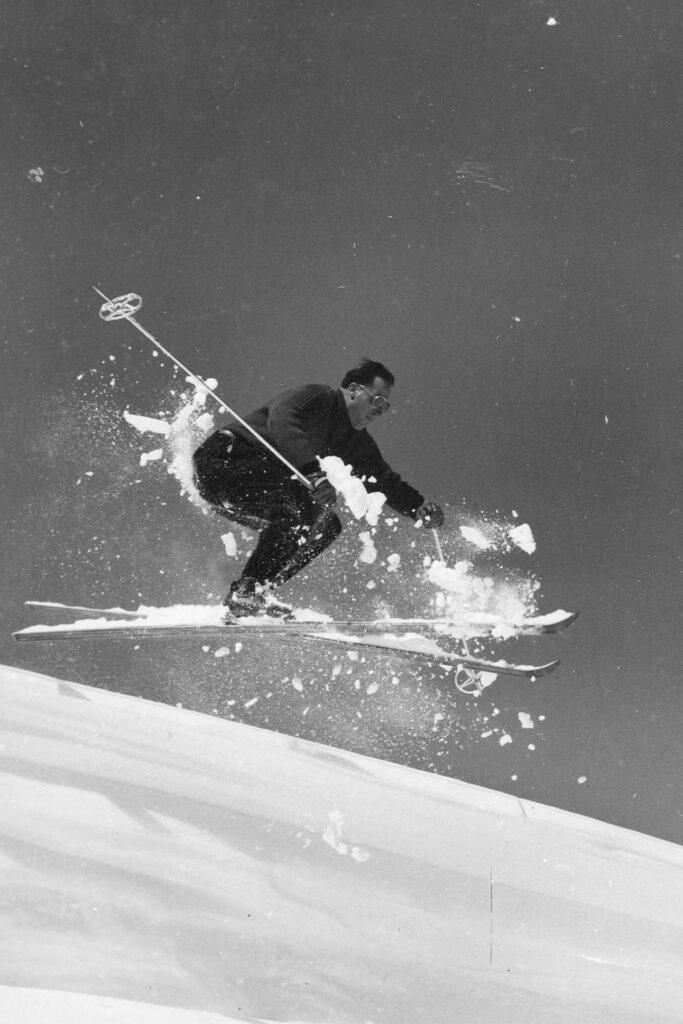
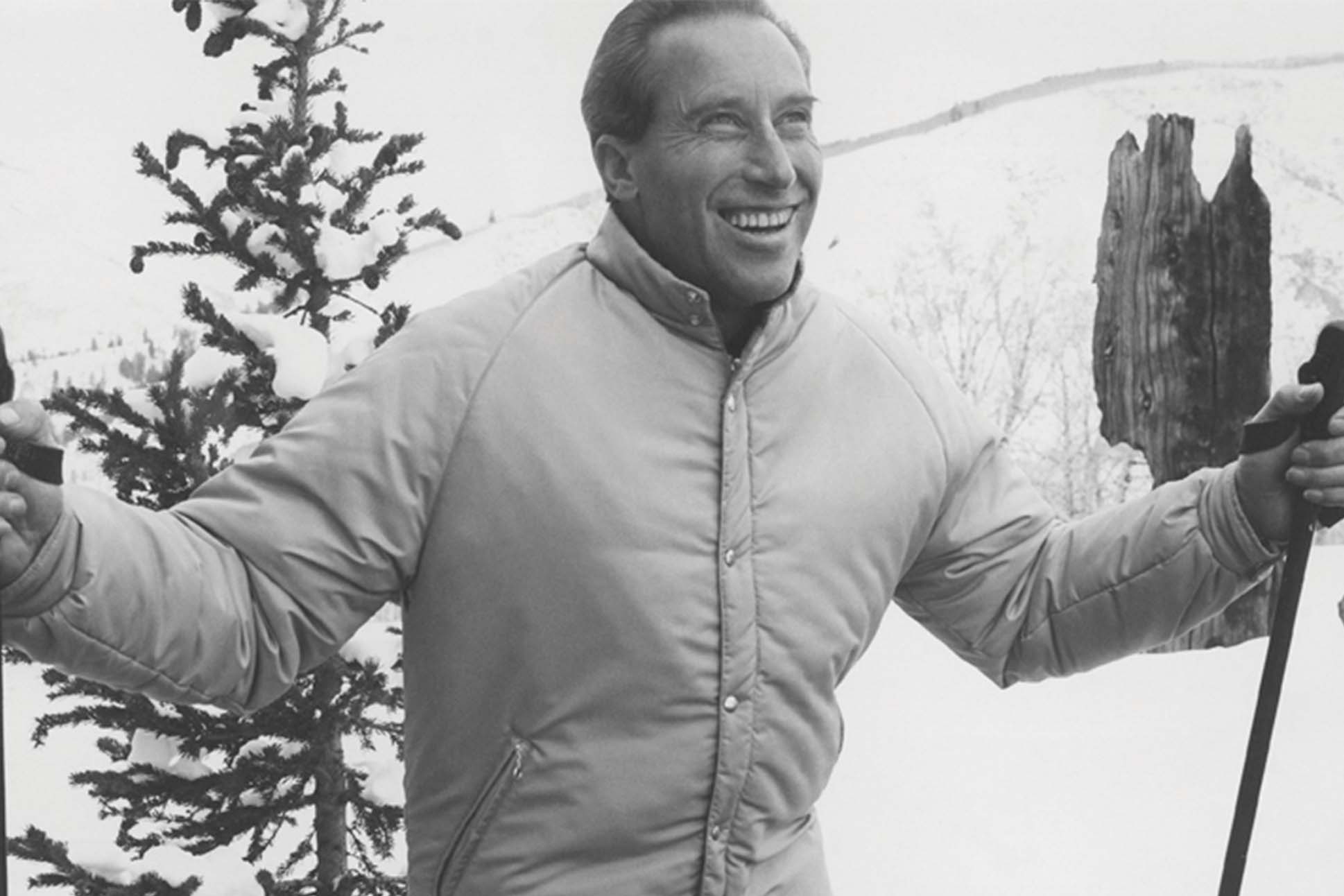
Can you talk about how skiing shaped your early life?
Klaus Sr.: I grew up racing in Germany. The first race I was in, I was five years old. I walked through the finish line carrying my skis, crying because the binding did not hold. I placed last. In the next race, I had a binding that held, and I placed first. Then, during the war, the Nazis made us give all of our skis to the army, and they sent them to Russia for German troops. They used them to burn wood on the Russian front. I went to a place where I thought I could get across the border from Germany to Austria on top of the mountains, but German border police—three of them—came out from behind a rock formation. I made a little jump and went straight down on the Austrian side. They shot at me. The bullet hit my rucksack, and I went off a big cornice and broke my femur. I ended up in Austria and waited for a doctor there as the war was winding down. Eventually, I made it to New York and helped teach American soldiers how to ski. Those connections helped me get to Aspen.
How did Sport Obermeyer come into existence?
Klaus Sr.: At the ski school in Aspen, Friedl Pfeifer told me, “Klaus, you are a technician. When you are not teaching, figure out the things that make skiing more fun.” I had brought some jackets with me from Germany, so we figured out how to make a good parka. Then I figured out how to make a really good ski pole out of steel instead of bamboo, and then we created sun tan lotion, the only one in the world at that time that worked at the high elevation of Aspen.
Klaus Jr.: When I was eight, I was bottling that high-altitude sunblock. I was able to watch this amazing time of hotdogging and the delight of skiing in the ‘60s and ‘70s. But one of the things that never really gets mentioned is our secret weapon on the fashion side of business. Nome Obermeyer, my mom, was really the ingredient that added to dad’s engineering mind. She was foundational to the roots of the businesses.
Nome: People needed apparel. They wanted it. Fashion gets a bad rap because you don’t think of it as having practical applications. But fur and down were warm and helped make life better outdoors.
Nome, did you expect you’d still be doing this all these years later with Klaus Sr.?
Nome: I don’t know that I ever looked that far forward, I just knew that whatever the day was it required all that we had. You don’t make something just to have something to sell. You make something because you want to offer a product to the people doing everything they can to get up on that mountain—the people who want to do something with their lives other than hunker down in front of the central heating.
Klaus Sr.: Most of it was just always fun to do. It was a great challenge, getting people to enjoy being outside their houses, to get them skiing, and to get them outdoors in the summer. Aspen has as many people coming in the summer as they do in the winter now. It’s really changed in a way.
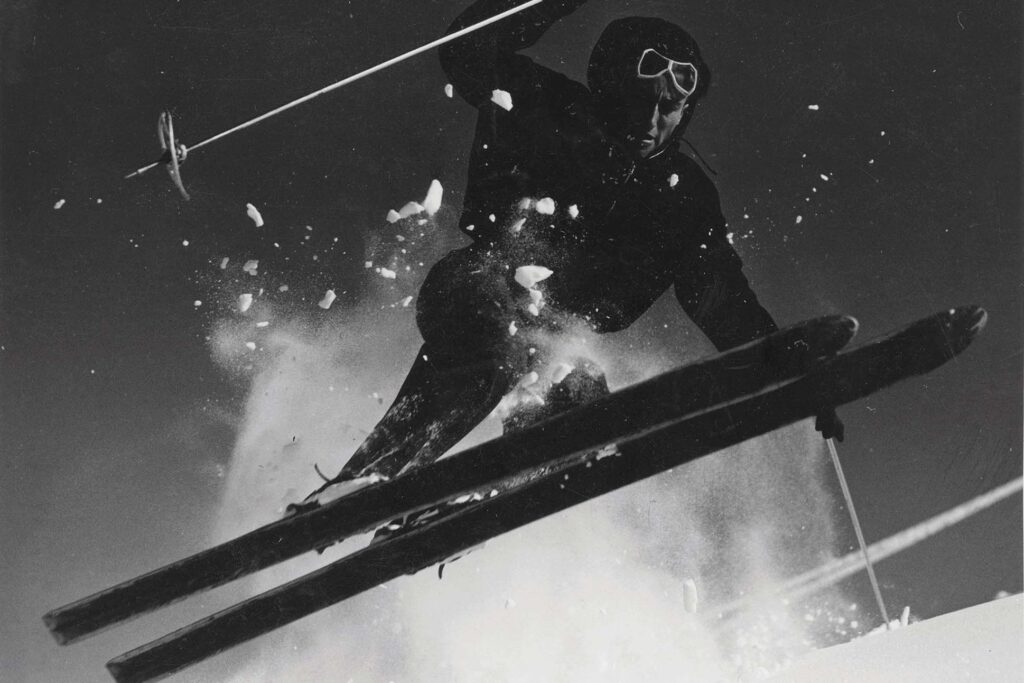
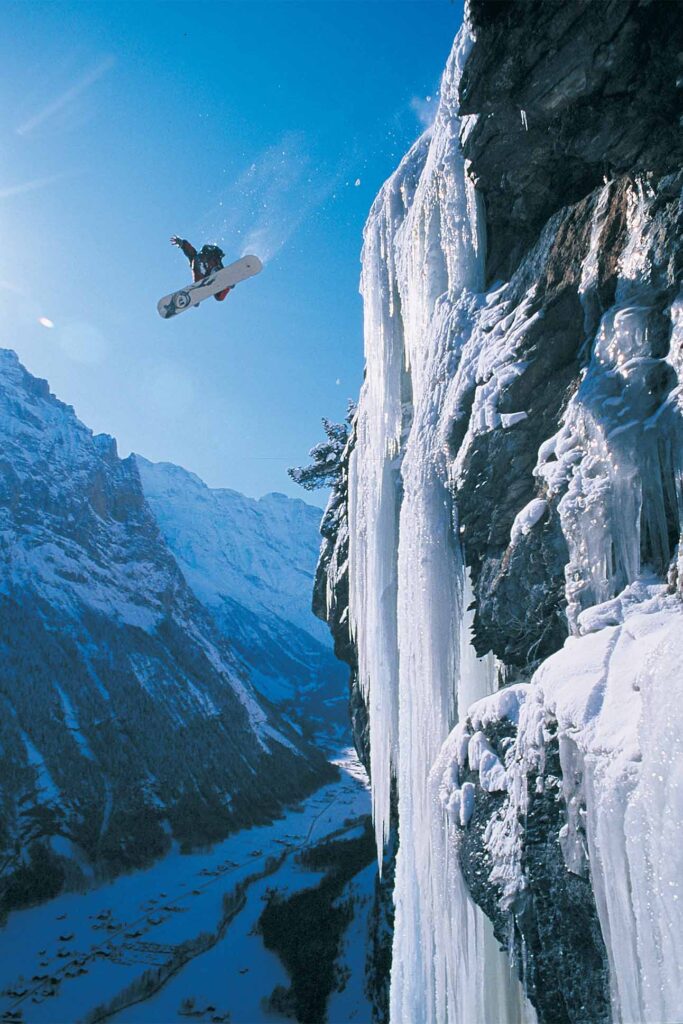
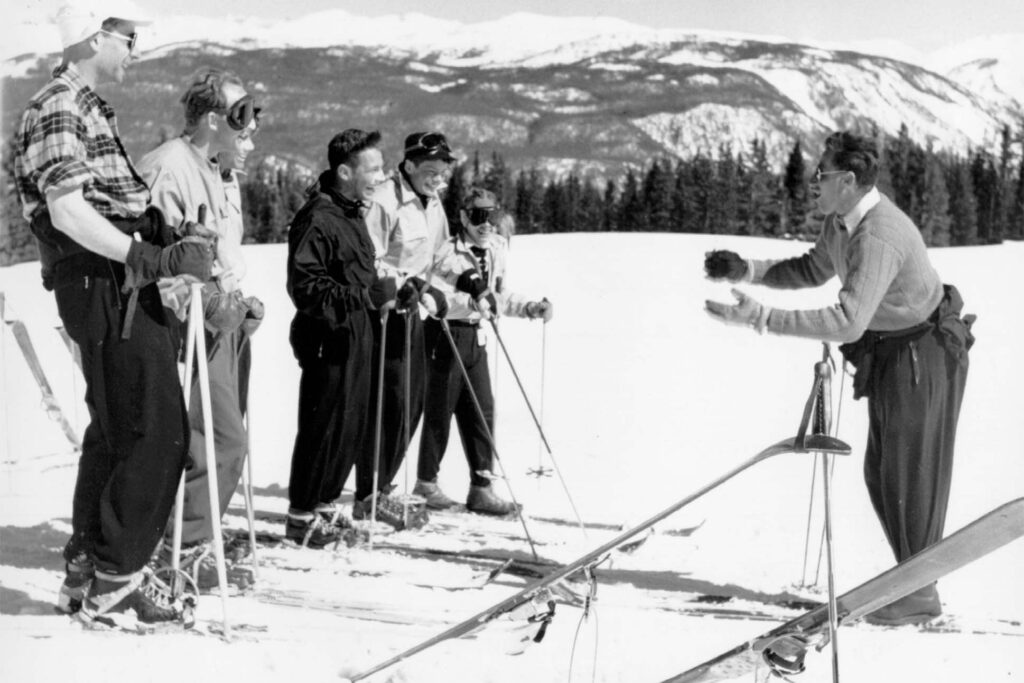
As the company looks to the future, what are you focused on?
Klaus Jr.: We’re in year 77 now, and although it’s a new time, it really is back to the roots in terms of the reason for being. Obermeyer was created to share the magic of winter and skiing, to enhance connectivity, and to facilitate self-expression. So, those principles are constant and they’re guiding whatever evolution happens with the brand. We’re using them to drive innovations that bring joy, that are functional, that are responsibly sourced and take into consideration sustainability. For instance, we work with high-tech fabrics and use the newest and latest technology to build things that last not just seasons, but generations. Our history is a huge asset as long as we stay dynamic. We try to embrace everything that is new, reconceptualize habits, and analyze whether our processes are intelligent. We’re willing to learn new things: Embracing AI, new tools, new fabrics, and ways of communicating our story and having a relationship with the consumer.
What does that look like?
Klaus Jr.: We’re making a documentary about my dad’s life. Obermeyer has been a very storied brand, and we have been kind of private and quiet. Having the chance to share stories about our family enables people to understand the company, which can be positive for the business. It’s not just to have a story of his life, but to share those nuggets of philosophy and learnings and to enrich other people’s lives through understanding that journey.
What do you see as the future of skiing?
Klaus Jr.: It continues to cross-pollinate all these different interpretations of sports. I was early in snowboarding on the Burton team, and that changed the ski business. That influenced fat skis and all these permeations. So, skiing will always be dynamic and we will go to exciting new places as technology advances.
Klaus Sr.: Skiing will keep growing. It’s going to get better and better. And I think it’s going to reach higher-elevation areas, too.
